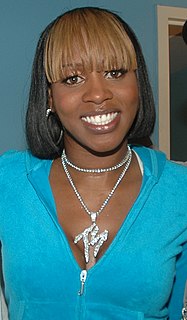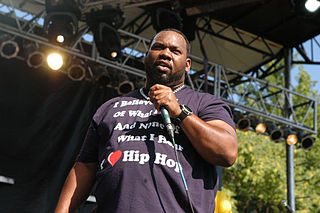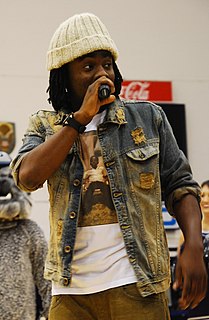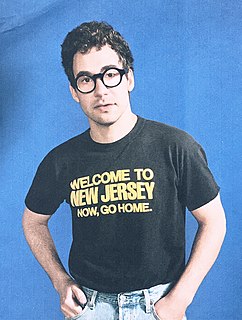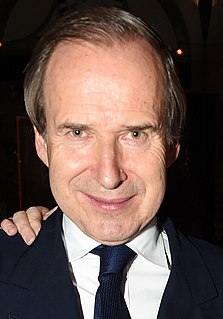A Quote by Remy Ma
Nah, I'm not one of those 'hip-hop is dead' people. I just like different artists. I never look at it as one entity. I've always felt like that.
Related Quotes
Some artists are definitely trying to do different styles. Some, not a lot. But even from what you've seen [of] Outkast, Kanye West, and Lil' Wayne, and different people expressing their way of evolving in hip-hop. In the evolution of hip-hop, they're doing different things. And you've seen hip-hop have more of a global presence and impact on the world.
Before I think we was emcees, we was more or less narrators too. Because if you look at the early '80s hip hop, it was so much creativity goin' on with artists like then, like Slick Rick, then you had Rakim, and you had these different kind of artists back then. And we was a marble cake of all these artists. So I didn't have a problem with writin' stories because I felt like that was somethin' I loved to do. Even to this day, I really consider myself an entertainer-slash-narrator. I like to talk about stuff that goes on.
Sometimes I'm just a little bit too honest. There was some things that were going on behind the scenes that I didn't like because it's not what hip-hop is about. Hip-hop is about honesty and it's about being real to the people, and I kinda felt like there's some instances where some artists aren't 100% honest with the people. Their integrity is lacking sometimes. And sometimes it comes out.
I think that people have been claiming hip-hop as being dead since the moment it started. I think there are people - and I can be included in that category sometimes - that get frustrated feeling like maybe the industry has handcuffed itself, or trained its artists to do or think about music in a way that classically hasn't led to the greatest records in hip-hop.
What sets 'Some Nights' apart from anything we've ever done is the hip-hop influence. Not so much the actual sound of hip-hop, but more the vibrato and the artistry that comes with it. Right now, the artists that seem to be pushing to be the greatest artists and are trying to change the world are hip-hop artists.
I think that's one thing that hinders hip-hop and I think when everybody tries to be the same... That's why people look at the 1990s almost like it was a golden era in hip-hop 'cause it was so much diversity in the music and in the artists. It wasn't everybody just trying to paint the same picture and say it with the same flow.
I would like to encourage hip hop artists to invite those of us who are in the queer spaces in, so we can have those conversations. I love hip hop. If you bring me in the studio, I know how to act. And we can talk about what's not cool because, clearly, there's still homophobia that penetrates in all these areas.
In this time, we incorporate money and media, and it's split up like apartheid, where when you say "hip-hop," you think just rap records. People might have forgot about all the other elements in hip-hop. Now we're back out there again, trying to get people back to the fifth element, the knowledge. To know to respect the whole culture, especially to you radio stations that claim to be hip-hop and you're not, because if you was a hip-hop radio station, why do you just play one aspect of hip-hop and rap, which is gangsta rap?
Even though hip-hop started as a battle format, different artists appeared on each other's records or hung out in the same clubs, supporting each other. That was a profound influence. Also, hip-hop, to me, represents limitless possibility. Hip-hop is always evolving. People say, "Oh, it's a very commercial thing, it's too R&B." But in six months, a record is gonna come out that will completely change that.
Socially, hip-hop has done more for racial camaraderie in this country than any one thing. 'Cause guys like me, my kids - everyone under 45 either grew up loving hip-hop or hating hip-hop, but everyone under 45 grew up very aware of hip-hop. So when you're a white kid and you're listening to this music and you're being exposed to it every day on MTV, black people become less frightening. This is just a reality. What hip-hop has done bringing people together is enormous.
